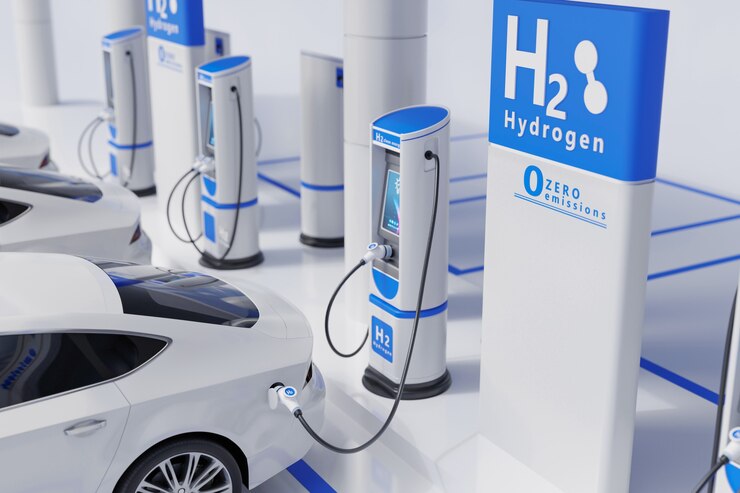Hydrogen fuel cell vehicles (FCVs) are gaining attention as a viable and sustainable alternative to traditional electric vehicles (EVs) and internal combustion engine vehicles. In 2024, advancements in hydrogen fuel cell technology and infrastructure are making FCVs a more practical and attractive option for green transportation.
How Hydrogen Fuel Cells Work
Hydrogen fuel cells generate electricity through a chemical reaction between hydrogen and oxygen, with water and heat as the only byproducts. This process produces zero emissions, making FCVs an environmentally friendly option. Unlike battery-electric vehicles, FCVs can be refueled quickly, similar to gasoline-powered vehicles, which makes them convenient for long-distance travel.
Advancements in Fuel Cell Technology
In 2024, significant advancements in fuel cell technology are enhancing the performance and efficiency of hydrogen FCVs. New developments include more compact and efficient fuel cell stacks, which provide greater power output and longer driving ranges. Additionally, improvements in hydrogen storage systems are increasing the amount of hydrogen that can be safely and efficiently stored in vehicles.
Expanding Hydrogen Refueling Infrastructure
A key challenge for the widespread adoption of hydrogen FCVs is the availability of refueling infrastructure. In 2024, there are concerted efforts to expand hydrogen refueling stations, especially in urban areas and along major highways. Governments and private companies are investing in building a comprehensive network of hydrogen stations, making it easier for FCV owners to find refueling points.
Environmental and Economic Benefits
Hydrogen FCVs offer several environmental and economic benefits. They produce zero tailpipe emissions, reducing air pollution and greenhouse gas emissions. The use of hydrogen, which can be produced from various renewable sources, helps decrease dependence on fossil fuels. Economically, the growing hydrogen industry is creating new jobs and stimulating investment in clean energy technologies.
Government Support and Incentives
Governments around the world are recognizing the potential of hydrogen FCVs and are providing support through incentives and policies. In 2024, many countries offer subsidies, tax credits, and grants for hydrogen fuel cell vehicle purchases and infrastructure development. These incentives are crucial for accelerating the adoption of hydrogen technology and achieving climate goals.







